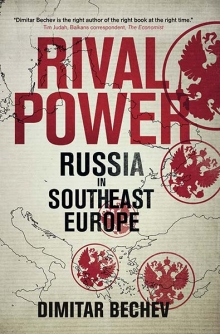
Malign outside influence in the Western Balkans, in particular by Russia, is of increasing concern. The lack of a strong legal framework makes countries in the region especially vulnerable to foreign capital that can be used to sow instability, undermine integration, and delay democratic development, notes the Commission on Security and Cooperation in Europe, also known as the Helsinki Commission:
The Center for International Private Enterprise (CIPE) has worked with local private and civil society partners to analyze the economic governance gaps that allow so-called “corrosive capital” to gain a foothold in Bosnia and Herzegovina, Macedonia, Montenegro, and Serbia. These partners will discuss the effect of specific gaps, as well as the need for further market-oriented reforms. Participants will also explore how the United States and Europe can help boost economic resiliency, encourage good governance, and protect democracy in the Western Balkans.
 Panelists scheduled to participate include:
Panelists scheduled to participate include:
- Ruslan Stefanov, Director, Bulgarian Center for Study of Democracy
- Milica Kovacevic, President, Montenegrin Center for Democratic Transition
- Nemanja Stiplija, Founder, “European Western Balkans” media outlet
- Dimitar Bechev, Research Fellow, Center for Slavic, Eurasian, and East European Studies, University of North Carolina – Chapel Hill
CIPE Managing Director Andrew Wilson will introduce the Center’s collaboration with local partners to analyze and address Western Balkan vulnerabilities to corrosive capital.
The Commission has announced the following briefing:
FOREIGN MEDDLING IN THE WESTERN BALKANS:
GUARDING AGAINST ECONOMIC VULNERABILITIES
Tuesday, January 30, 2018
10:00 AM
Russell Senate Office Building
Room 385
Capitol Hill
Washington, DC
Live Webcast: www.facebook.com/HelsinkiCommission







